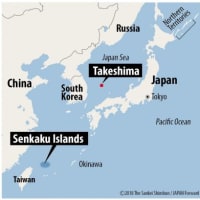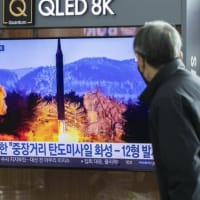
Despite variables such as the situation in Ukraine, the U.S.-China confrontation is expected to be a major axis of global politics for decades to come.
Therefore, Japan should clarify its principled argument regarding its position on this issue in light of its national interests.
This should be divided into short-term, and medium-to-long-term, and should be formulated in light of the diverse aspects of the U.S.-China confrontation in each region and issue area.
We should determine where areas of U.S.-China confrontation particularly stand out, broaden Japan's options there, and then create an environment in which Japan is not at a disadvantage.
To this end, it is important not only to know China and its allies, but also to analyze and understand Japan's current situation in a dispassionate and objective manner.
Japan is China's neighbor and has close economic ties with China; the rising capabilities of China's naval police over the Senkaku Islands issue; and China's technological innovations in the digital domain and elsewhere; China has been preparing for the unification of Taiwan.
Japan should consider and address these points based on objective facts and realism, not assumptions and hopes.



















